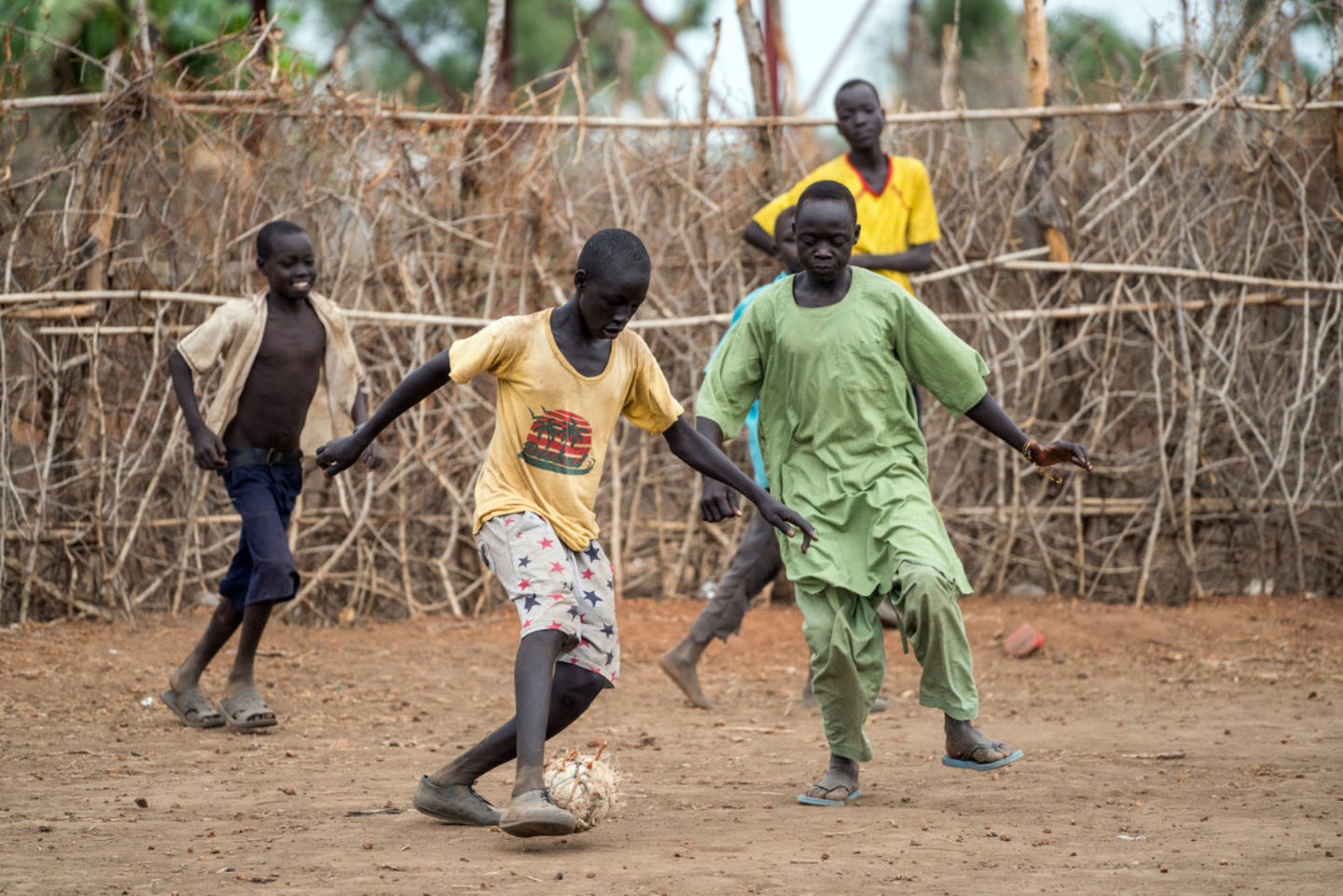Stories from South Sudan
How Conflict and Crisis Affect Childhood
Imagine you have no choice but to abandon your home and flee from violence. You see family members die, you lose dear friends and neighbors. You emerge in a strange place and try to survive on your own without your possessions.
Now imagine doing that as a child. You’d grow up fast, whether you like it or not.
Conflict puts children at risk
Children living in crisis suffer immensely. They are more susceptible to malnutrition, disease, abuse and exploitation, sexual violence, early marriage and motherhood, lack of access to education, and discrimination from host communities.
The numbers can be staggering:
- 28 million children are currently displaced from their homes.
- There are twice as many child refugees as there were 10 years ago.
- Nearly half of those child refugees are from Syria and Afghanistan.
Yet behind each number is a child clinging to their hopes and dreams for the future. Some dream of going to school, others dream of being reunited with friends and family, others simply dream of a safe environment to live in.
Forced to grow up too fast
Take South Sudan where children bear the scars of a conflict that continues to tear their country apart. Children repeatedly flee from danger; they lose loved ones; face hunger, malnutrition, and drink unsafe water; and grow up without schooling. It takes a severe toll on the physical and emotional well-being of millions of the country’s children.
“In South Sudan, the children cry, scream, play, laugh, eat, drink, and throw tantrums just like children the world over. But there is a sadness that hits me hard,” said Sarah R., a Medair relief worker in South Sudan.
“Children have so little. They scrape every last bit of Plumpy’Nut out of a sachet because they are so hungry. They walk long distances, often carrying a younger sibling, with no shoes or broken shoes. They don’t all have the opportunity to attend school. Many are very ill and malnourished. It breaks my heart to see the future of South Sudan limping ahead to what appears to be nothing positive. Yet the support Medair provides to suffering children greatly improves their chances to heal. There is hope in the sadness.”
To help protect and support children living through the conflict in South Sudan, we’re providing hundreds of thousands of children with health services, treatment for malnutrition, emergency shelter, essential household items, and water, sanitation and hygiene (WASH) services.

In Maban County, boys play soccer in the heat of the day using a ball they made out of plastic and string. They set up goal posts using bottles and shoes, and fill the air with their shouts of frustration and victory.
In a remote, insecure region of South Sudan, Medair teams also operate Child-Friendly Spaces (CFS) at three clinics, which provide a safe place for children to play and learn while receiving treatment. Here children can listen to stories, play soccer, and jump rope. CFS give children a place to escape the harsh reality of their lives, a place to begin to heal, a place to be children.
Interventions like these help children and youth not only cope with and survive crisis but also build resilience.
Children are the future
It can feel overwhelming, all these childhoods seemingly lost. The hope we hold onto is the fact that children can be incredibly resilient. Even against the backdrop of conflict and disaster, they retain what it is to be a child. Our teams have seen make-shift soccer pitches appear in dusty corners of refugee settlements; piles of rubble are transformed into castles and the sites of treasure hunts; and little smiles with loose and missing teeth welcome a friendly new face.
“Children are not only the future, they are also the present,” says Ketsia B., Medair relief worker in Madagascar. “By educating them, we encourage them to have a positive influence and bring about change within their families. It is so important to invest in children.”
That’s why we believe it is vital to invest in children if we are to build a better future. This belief is what spurs us to continue to serve the most vulnerable, children included.
Will you join us? Give a child a chance at life. Make a gift of any amount today.
